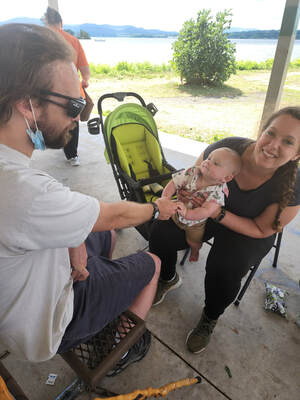Service Coordination
The Service Coordinator coordinates and monitors the provision of all services in the Service Plan. Services may include Medicaid State Plan services, non-Medicaid federal, state and locally funded services, as well as educational, vocational, social, and medical services. The goal is to increase the participant’s independence, productivity and integration into the community while maintaining the health and welfare of the individual.
The participant is the primary decision-maker in the development of goals, and selection of supports and individual service providers. The Service Coordinator is responsible for assuring that the Service Plan is implemented appropriately and supporting the participant to become an effective self-advocate and problem solver. Together they work to develop and implement the Service Plan, which reflects the participant’s goals. The Service Coordinator assists the participant in the development, implementation and monitoring of all services in the Service Plan. Additionally, the Service Coordinator must initiate and oversee the assessment and reassessment of the participant’s level of care and on-going review of the Service Plan.
The Service Coordinator must also be an effective advocate for the participant, ensure that the participant is receiving appropriate and adequate services from providers and maintain quality assurance.
The participant is the primary decision-maker in the development of goals, and selection of supports and individual service providers. The Service Coordinator is responsible for assuring that the Service Plan is implemented appropriately and supporting the participant to become an effective self-advocate and problem solver. Together they work to develop and implement the Service Plan, which reflects the participant’s goals. The Service Coordinator assists the participant in the development, implementation and monitoring of all services in the Service Plan. Additionally, the Service Coordinator must initiate and oversee the assessment and reassessment of the participant’s level of care and on-going review of the Service Plan.
The Service Coordinator must also be an effective advocate for the participant, ensure that the participant is receiving appropriate and adequate services from providers and maintain quality assurance.
Independent Living Skills Training
It is the responsibility of the ILST provider to conduct a comprehensive functional assessment of the waiver participant, identifying the participant’s strengths and weaknesses in performing Activities of Daily Living (ADL) and Instrumental Activities of Daily Living (IADL) related to his/her established goals. The assessment is the basis for developing an ILST plan that describes the milestones and interim steps necessary to attain these goals. The assessment must also include a determination of the participant’s manner of learning new skills and responses to various interventions.
This comprehensive and functional assessment must be conducted at least annually from the date of the last assessment. ILST services may include assessment, training, and supervision of, or assistance to, an individual with issues related to self-care, medication management, task completion, communication skills, interpersonal skills, socialization, sensory/motor skills, mobility, community transportation skills, reduction/elimination of maladaptive behaviors, problem solving skills, money management, pre-vocational skills and skills to maintain a household. ILST services are individually designed to improve the ability of the participant to live as independently as possible in the community. ILST may be provided in the participant’s home or in the community. This service is provided on an individual basis.
This comprehensive and functional assessment must be conducted at least annually from the date of the last assessment. ILST services may include assessment, training, and supervision of, or assistance to, an individual with issues related to self-care, medication management, task completion, communication skills, interpersonal skills, socialization, sensory/motor skills, mobility, community transportation skills, reduction/elimination of maladaptive behaviors, problem solving skills, money management, pre-vocational skills and skills to maintain a household. ILST services are individually designed to improve the ability of the participant to live as independently as possible in the community. ILST may be provided in the participant’s home or in the community. This service is provided on an individual basis.
Structured Day Program
Structured Day Program services are individually designed services, provided in an outpatient congregate setting or in the community, to improve or maintain the waiver participant's skills and ability to live as independently as possible in the community.











